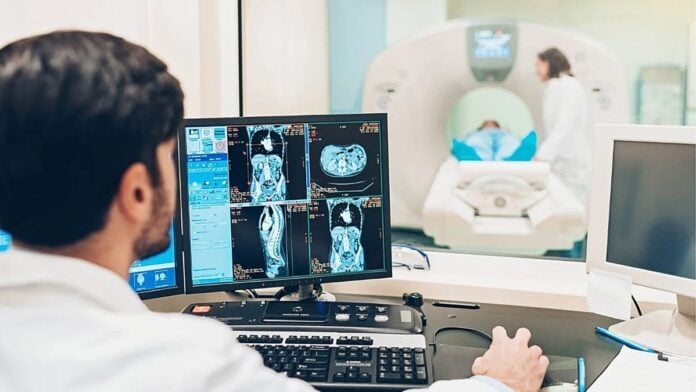Artificial intelligence (AI) can now detect chronic stress by analyzing standard chest CT scans, a breakthrough that could improve early diagnosis and treatment for stress-related illnesses. Researchers have identified a measurable link between adrenal gland size – visible on routine scans – and long-term stress levels.
The Science Behind the Discovery
The study, set to be presented at the Radiological Society of North America (RSNA) meeting, involved nearly 3,000 patients. Scientists trained a deep learning AI model to measure adrenal gland volume from CT scans and then correlated that data with self-reported stress levels, cortisol readings, and other health indicators like BMI, blood pressure, and heart rate.
Adrenal glands act as a “biological barometer” for stress, as they produce hormones regulating the body’s stress response. Patients who reported chronic stress consistently showed larger adrenal glands and higher cortisol levels – both linked to increased risks of heart failure. This is significant because chronic stress is a major contributor to heart disease, depression, and obesity, yet it has historically been difficult to measure objectively.
Why This Matters
Currently, assessing chronic stress relies heavily on subjective questionnaires or invasive biological markers like cortisol spikes or chronic inflammation. These methods are often unreliable or impractical for widespread use. The AI model offers a scalable, non-invasive way to quantify the cumulative effects of stress, which could have far-reaching implications.
“For the first time, we can ‘see’ the long-term burden of stress inside the body, using a scan that patients already get every day in hospitals across the country,” says Shadpour Demehri, a radiology professor involved in the study.
The AI model isn’t limited to stress detection; it could also help identify a range of stress-related diseases in older adults. Though the study has not yet been peer-reviewed, its findings suggest a powerful new tool for preventative healthcare.
This development highlights the growing potential of AI in medical diagnostics, offering a more precise and accessible approach to understanding the physiological impacts of chronic stress.









































